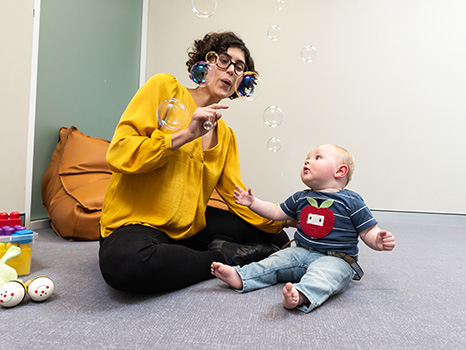Search
Our award-winning 60 Second Science video series translates the latest research into an accessible format for the community. Here you will also find our Autism Seminar Series and videos about our clinical services and current research projects.

News & Events
Meet the Client Support TeamThe Client Support Team at CliniKids has some new faces! Nicki and Amy join our lovely Tracy.

CliniKids has developed a range of fact sheets to support everyday activities at home. We've also included links to some resources and websites for parents and carers developed by other support services.

Meet the ambassadors for Embrace.

News & Events
Frangipani Family DayFrangipani Family Day is an opportunity for CliniKids to celebrate the families we engage with through our clinical services and research.

News & Events
National survey reveals mental health burden on Aboriginal and Torres Strait Islander LGBTQA+ youthMEDIA ENQUIRIES Media Contacts Please direct general enquiries to our reception on (08) 6319 1000. Please direct media enquiries to our media team:

Not all children or teenagers identify with the gender they were presumed at birth. As a result, some may choose to change their name, their clothes or their body and live as a different gender. Some may choose to obtain specialised medical treatment.

News & Events
Mental health MattersSaxon Marrell proves one person who cares can make a difference.
Research
THINK BIG - Neurodevelopmental DisordersAmy Andrew Helen Jenny Martyn Melissa Videos Finlay-Jones Whitehouse Watch and listen to Andrew Leonard Downs Symons Licari BPsych(Hons), MPsych(
Research
Investigating associations between birth order and autism diagnostic phenotypesBirth order effects have been linked to variability in intelligence, educational attainment and sexual orientation. First- and later-born children have been linked to an increased likelihood of an Autism Spectrum Disorder (ASD) diagnosis, with a smaller body of evidence implicating decreases in cognitive functioning with increased birth order. The present study investigated the potential association between birth order and ASD diagnostic phenotypes in a large and representative population sample.
